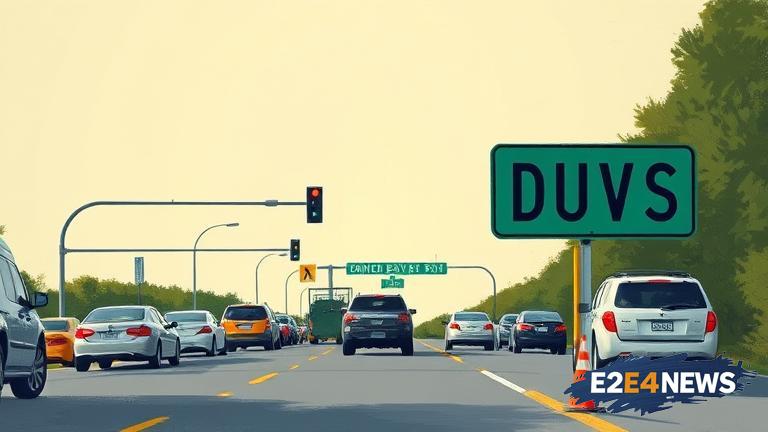The North Carolina Department of Motor Vehicles (DMV) has been plagued by long wait times, leaving residents frustrated and seeking solutions. State Auditor Dave Boliek has suggested a potential fix: separating the DMV from the Department of Transportation (DOT). According to Boliek, this split could help streamline services and reduce wait times. The idea is not new, but it has gained traction in recent months as the DMV’s struggles have come under scrutiny. The DMV is currently a division of the DOT, which also oversees the state’s transportation infrastructure. By separating the two, Boliek argues that the DMV could focus more on its core mission of providing driver’s licenses, vehicle registrations, and other services. This could lead to improved efficiency and reduced wait times. The proposal has been met with interest from lawmakers, who are eager to find solutions to the DMV’s problems. The DMV has faced criticism for its long wait times, which have been exacerbated by staffing shortages and outdated technology. In some cases, residents have reported waiting hours or even days to complete simple transactions. The situation has become so dire that some have called for the DMV to be privatized or overhauled entirely. Boliek’s proposal offers a more nuanced approach, one that could potentially preserve the DMV’s public mission while improving its operations. The idea of separating the DMV from the DOT is not without precedent. Other states have made similar moves, with varying degrees of success. For example, some states have created standalone DMVs, while others have merged their DMVs with other agencies. The key to success, according to Boliek, will be to ensure that the DMV has the resources and autonomy it needs to operate effectively. This could involve providing additional funding or staffing, as well as giving the DMV more flexibility to innovate and improve its services. The proposal has also sparked debate about the role of the DMV in North Carolina’s government. Some argue that the DMV is a critical component of the state’s transportation infrastructure, and that separating it from the DOT could create unnecessary bureaucracy. Others see the DMV as a distinct entity that deserves its own agency, one that can focus on providing high-quality services to residents. As the debate continues, one thing is clear: the DMV’s long wait times and inefficiencies must be addressed. Whether through separation from the DOT or other means, the state must find a way to improve the DMV’s operations and provide better services to its residents. The proposal has been met with interest from residents, who are eager to see improvements to the DMV’s services. Many have taken to social media to share their own experiences with the DMV, from long wait times to frustrating interactions with staff. The situation has become a major issue in North Carolina, with many calling for reform. The state’s lawmakers are under pressure to find a solution, and Boliek’s proposal is just one of several ideas being considered. As the state moves forward, it will be important to consider the potential benefits and drawbacks of separating the DMV from the DOT. This could involve conducting studies or gathering feedback from residents, as well as exploring other potential solutions to the DMV’s problems. Ultimately, the goal should be to create a more efficient and effective DMV, one that can provide high-quality services to residents without the long wait times and frustrations that have become all too common. The proposal is a step in the right direction, but it will require careful consideration and planning to ensure its success. The state’s residents are watching closely, eager to see improvements to the DMV’s services and a reduction in wait times. With the right approach, it is possible to create a better DMV, one that serves the needs of North Carolina’s residents and provides a positive experience for all.





